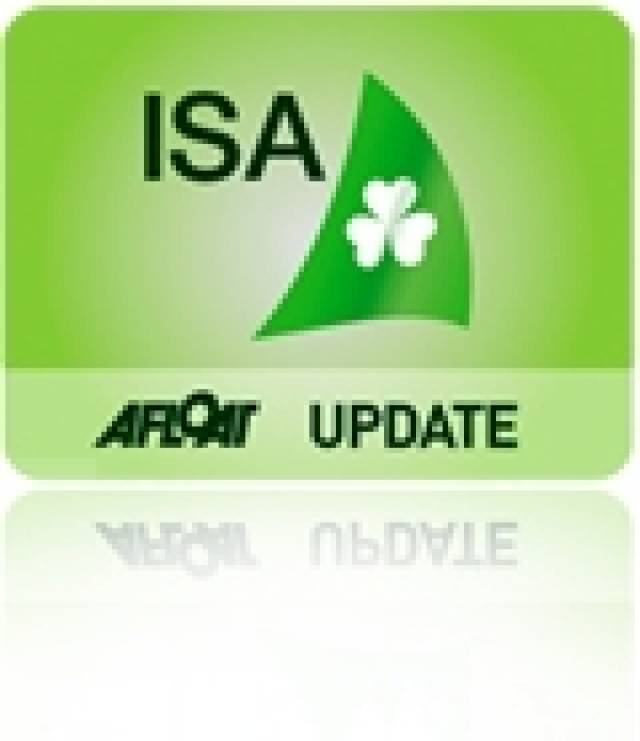#dinghy – Dinghy sailors are blowing the bugle for change at tomorrow's Irish Sailing Association (ISA) agm with some of the country's top regatta organisers, club commodores, champions and racers joining in an online debate in advance of a motion that has been tabled for discussion at 4.30pm at the Royal Marine Hotel in Dun Laoghaire, Co. Dublin.
This morning the organiser of last year's successful ISAF Youth world Championships in Dun Laoghaire, Brian Craig urges the ISA to build trust with its clubs and classes.
'it should direct it energies at the clubs rather than trying to justify/communicate its existence to the members of the clubs – otherwise it becomes, as Gerry Byrne suggests [see comments], a glorified club rather than a national authority' says Craig.
The dinghy decline subject is also the focus of today's Irish Times Sailing Column by David O'Brien and yesterday's Evening Echo Column by Tom MacSweeney.
ISA Chief Executive Harry Hermon told Afloat.ie 'This is a really useful debate and is welcomed'.
Brian Craig's comments join former association president Roger Bannon and many others in questioning the current dinghy policy which GP14 sailor Norman Lee, who proposed the motion, says is killing off senior dinghy sailing.
'I want a full shake-up. Lets take the focus off the Olympics and have a root and branch reappraisal of sail training' says Lee.
Craig tells the ISA they need to 'Look after the basics' and asks why 'if key key stakeholders are feeling neglected is the organisation expanding into other areas of activity some of which are encroaching on or eroding the activities of their own clubs/classes?'
Craig continues – 'This doesn't build trust and working relationships. It should direct it energies at the CLUBS rather than trying to justify/communicate its existence to the members of the clubs'.
Lee blames an 'over-emphasis of the training of selected juveniles by the creation of elite squads of possible future Olympians'
The champion dinghy sailor says current policy is 'without proper regard to the interests of those failing (for whatever reasons) to meet that standard or who are not able or cannot afford to give the time or family/financial commitment and this discourages people who are lost to the sport'.
Also supporting the motion, the GP14 fleet will ask if the elite squad system has chased the club sailor away? The Fireball class says the current structure is too “youth orientated and fails to develop the ISA’s own slogan of sailing as a ‘sport for life’”.
Anther sailor with a unique insight into this is seasoned dinghy and one design helmsman is the Dublin Bay sailor Sean Craig, a former ISA racing director with recent involvement in junior sailing too.
'It's no coincidence that senior dinghy sailing has nose-dived around the same time that junior numbers if anything were going up (not the case now alas) and the ante was upped at junior/youth level. Where I think ISA policy has definitely got it wrong is the disconnect between learning to sail and the rest of the sport'.
Yesterday, ISA Chief Executive Harry Hermon told Afloat.ie:
'The ISA is implementing a core strategy developed in consultation with our members, launched in 2008 - the implementation of which is funded largely by the Clubs, Sports Council and commercial activity. This strategy is about growing the 'sport' in all it's aspects, and protecting the interests of the Irish boating community'
The core policy of the ISA since we launched our first strategic plan in 1998 has been to drive the growth and development of the sport through the club structures. As the activities of the clubs have become more diverse over the years, so have the interests of ISA members, and ISA strategies have developed with it.
In relation to the development of competitive dinghy racing, I think the issue has arisen due to a number of factors and I agree with many of the comments in the forum, the solution perhaps in this area is a three way partnership between the clubs, classes and the ISA working together in the interests of the sport.
TO VIEW THE AGM MOTION, READ THE DINGHY DECLINE ARTICLE AND COMMENTS (AND ADD YOUR OWN) CLICK HERE.






























































